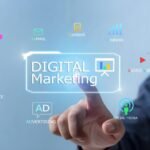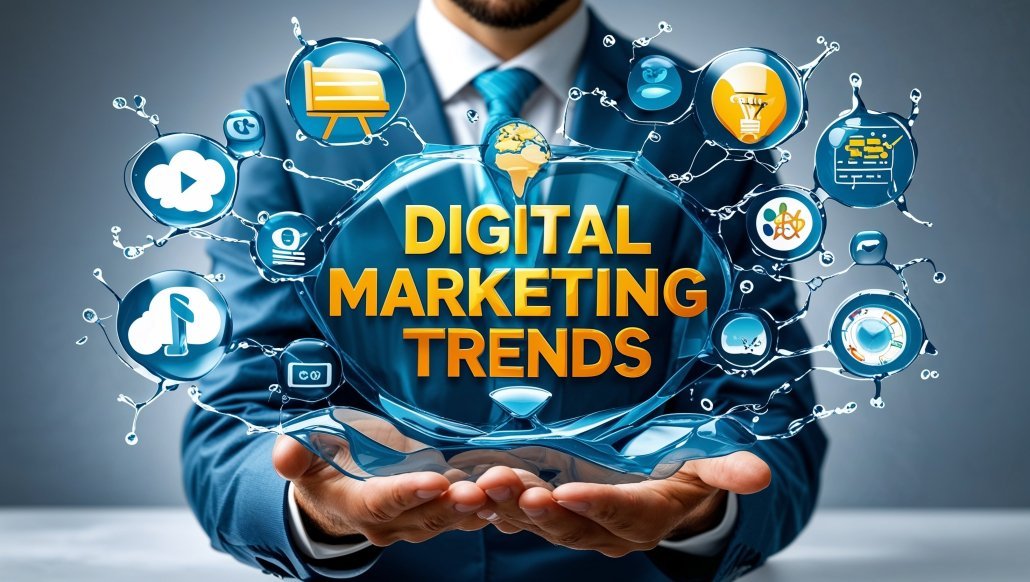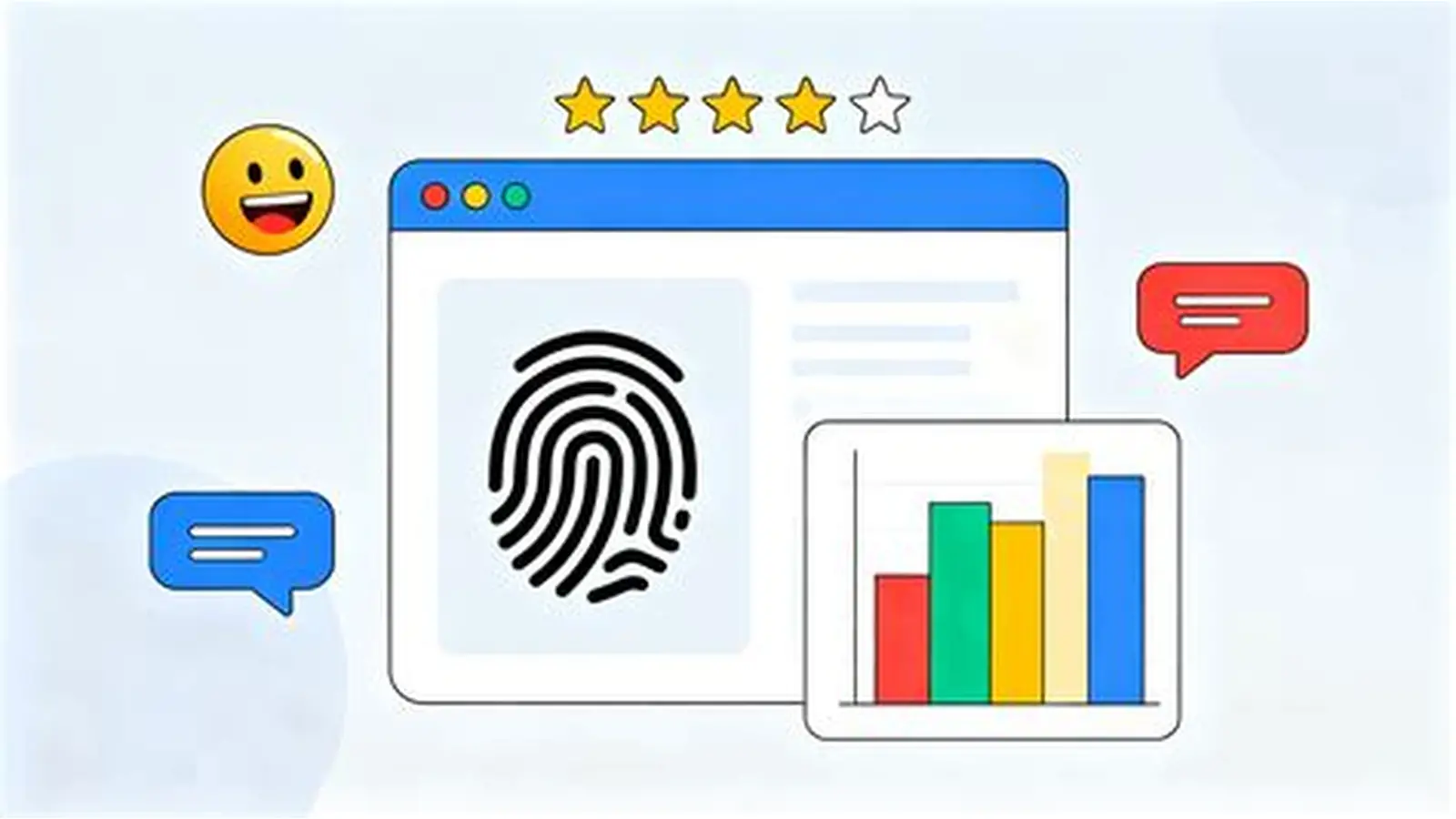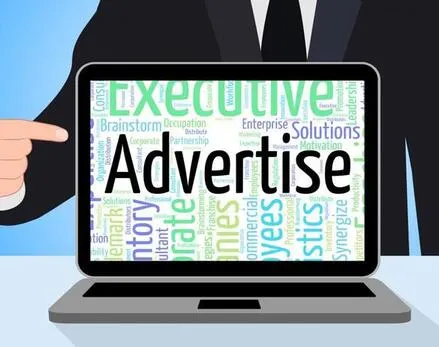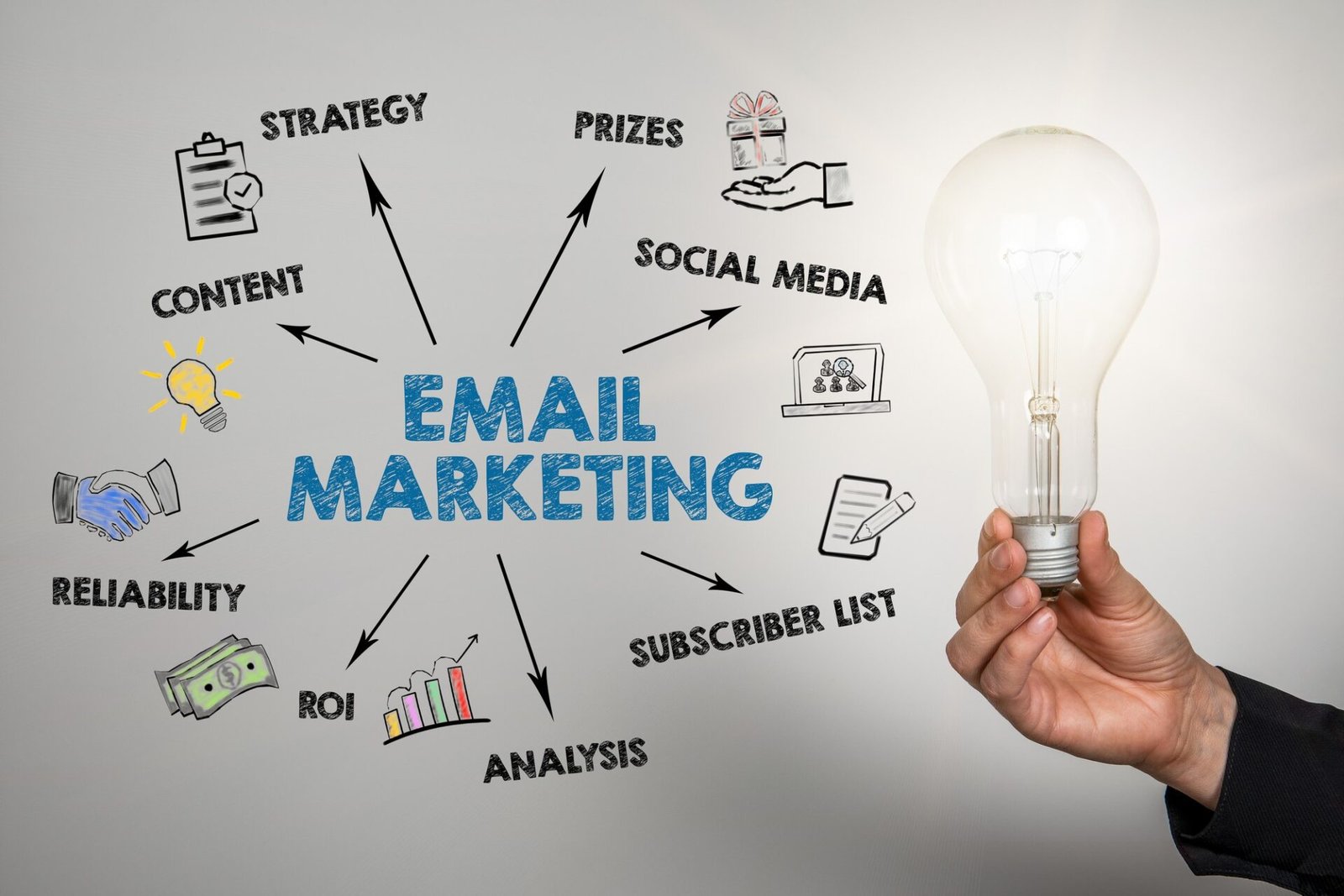Digital marketing continues to evolve at lightning speed. As technology advances, consumer expectations rise, and new platforms emerge, marketers must adapt to stay relevant. The year 2025 will bring transformative changes that redefine how brands connect with audiences. From artificial intelligence to immersive experiences, understanding these trends will help businesses stay ahead in a competitive digital landscape.
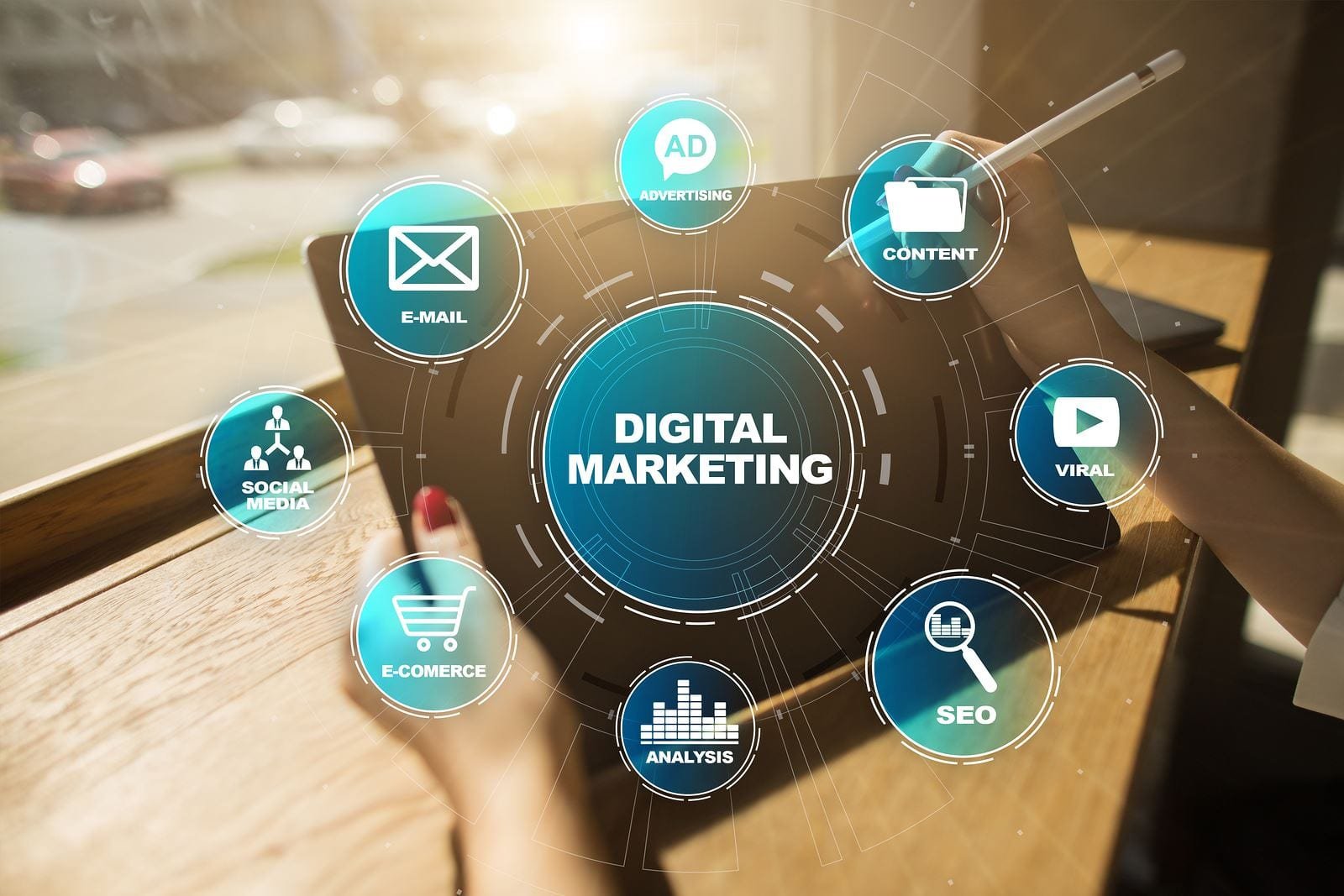
Artificial Intelligence Drives Personalization
AI continues to shape marketing strategies through automation and data analysis. In 2025, personalization powered by AI will reach new heights.
How AI Impacts Digital Marketing:
-
Predicts customer behavior and preferences.
-
Delivers personalized product recommendations.
-
Automates customer support through intelligent chatbots.
-
Optimizes ad campaigns in real time.
AI enables brands to offer tailored experiences that increase engagement and loyalty.
Voice and Visual Search Take Center Stage
As smart devices and visual recognition tools become more advanced, users are shifting from typing to speaking and snapping photos. Voice and visual search will dominate the way people discover products.
What Businesses Should Do:
-
Optimize content for conversational queries.
-
Use structured data and natural language.
-
Add high-quality images with descriptive alt text.
-
Focus on mobile-friendly, fast-loading pages.
Adapting to these changes ensures visibility when consumers search using voice assistants or image-based tools.
Short-Form Video Remains a Powerhouse
Video content continues to be the most engaging format, and short-form videos are leading the charge. Platforms like TikTok, Instagram Reels, and YouTube Shorts are shaping how brands tell stories.
Tips for Using Video Effectively:
-
Create short, captivating clips that grab attention in seconds.
-
Highlight your brand’s personality and authenticity.
-
Use trending audio and hashtags strategically.
-
Incorporate calls to action that inspire engagement.
Video marketing in 2025 will focus on authenticity and storytelling rather than polished perfection.
Data Privacy and Ethical Marketing Become Priorities
Consumers are more conscious of how their data is collected and used. With stricter privacy laws and growing concerns about transparency, ethical marketing will become essential.
Best Practices for Responsible Marketing:
-
Be transparent about data collection and usage.
-
Obtain clear consent from users.
-
Comply with global privacy regulations like GDPR and CCPA.
-
Use first-party data for personalized yet ethical targeting.
Building trust through ethical practices strengthens brand credibility and customer relationships.
The Rise of the Creator Economy
Independent creators are becoming powerful voices in marketing. In 2025, brands will rely more on partnerships with creators who offer authenticity and strong community connections.
How to Leverage the Creator Economy:
-
Partner with micro- and nano-influencers who align with your values.
-
Encourage user-generated content to increase authenticity.
-
Collaborate on storytelling that feels genuine and relatable.
-
Provide creators with creative freedom to maintain trust.
Creators bridge the gap between brands and audiences by bringing real-world influence to marketing campaigns.
Augmented and Virtual Reality Enhance Experiences
Immersive technologies like AR and VR will redefine digital experiences. They allow users to interact with products and services virtually before making decisions.
Applications of AR and VR in Marketing:
-
Virtual try-ons for fashion and beauty products.
-
Interactive 3D product demonstrations.
-
Virtual showrooms and immersive events.
-
Gamified brand experiences.
These technologies create memorable interactions that boost engagement and sales.
Predictive Analytics Powers Smarter Decisions
Data-driven marketing will go beyond reporting past performance to forecasting future trends. Predictive analytics will help marketers anticipate customer needs and make proactive decisions.
How Predictive Analytics Helps:
-
Forecasts demand and seasonal trends.
-
Identifies high-value customers.
-
Suggests optimal pricing and timing for campaigns.
-
Reduces churn through predictive behavior modeling.
Using predictive insights ensures marketing strategies are proactive rather than reactive.
Sustainability Shapes Brand Identity
Sustainability will become a defining factor for brand loyalty. Consumers increasingly prefer businesses that prioritize social and environmental responsibility.
Ways to Promote Sustainable Marketing:
-
Highlight eco-friendly initiatives and partnerships.
-
Use sustainable materials in packaging and products.
-
Share transparent sustainability reports.
-
Support social causes aligned with your mission.
Sustainability isn’t just a trend—it’s becoming an expectation that builds long-term brand trust.
Omnichannel Marketing Becomes Smarter
Consumers expect seamless experiences across all touchpoints. In 2025, omnichannel marketing will rely heavily on data integration and automation.
How to Strengthen Omnichannel Strategies:
-
Integrate online and offline customer data.
-
Use automation tools to deliver consistent messages.
-
Maintain brand tone and visuals across every platform.
-
Measure performance holistically rather than channel by channel.
A unified customer journey ensures consistent engagement and brand recognition.
Conversational Marketing Grows Through AI
Chatbots and AI-driven conversations will continue to evolve, offering real-time, personalized customer interactions.
Benefits of Conversational Marketing:
-
Provides 24/7 support and instant answers.
-
Captures leads through interactive dialogue.
-
Delivers personalized recommendations.
-
Builds relationships through human-like communication.
Conversational marketing bridges the gap between automation and personalization, improving both user experience and conversion rates.
Conclusion
The future of digital marketing in 2025 will be driven by technology, personalization, and ethical engagement. Marketers who embrace AI, focus on immersive experiences, and prioritize transparency will stand out in a crowded market. Success will depend on balancing innovation with authenticity—creating meaningful connections while adapting to ever-changing digital landscapes. The brands that evolve with these trends will lead the way in the next era of marketing.




